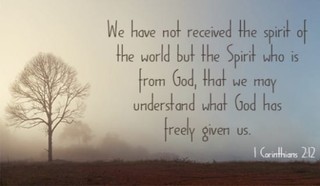
- Recent Translations
- All Translations
Images for 1 Korinther 2:8

1 Korinther 2:8 Meaning and Commentary
Which none of the princes of this world knew
Meaning not the devils, as some have thought, who had they known what God designed to do by the death of Christ, would never have been concerned in bringing it about; nor so much the political governors of the Roman empire, particularly in Judea, as Herod and Pontius Pilate, who also were entirely ignorant of it; but rather the ecclesiastical rulers of the Jewish church state, called (hzh Mlwe) , "this world", in distinction from (abh Mlwe) , "the world to come", or times of the Messiah; see ( Hebrews 2:5 ) such as the priests, Scribes, and Pharisees, the Rabbins and learned doctors. These knew nothing of the wisdom of the Gospel, or the wise counsels of God concerning salvation by Christ; they knew not the Messiah when he came, nor the prophecies concerning him; the Jews and their rulers did what they did through ignorance, and fulfilled those things they knew nothing of; see ( Acts 3:17 Acts 3:18 ) ( 13:27 ) .
for had they known it, they would not have crucified the Lord of
glory.
They would have received him, believed in him, and not put him to death: a very great character is here given of Christ, "the Lord of glory", or the glorious Jehovah; reference seems to be had to ( Psalms 24:7 ) where he is called, "the King of glory", and is an argument of his true and proper deity: he is so called because possessed of all glorious perfections, and is the brightness of his Father's glory; the same honour and glory are due to him as to the Father; and the same ascriptions of glory are made to him by angels and men. This is an instance of what the ancients call a communication of idioms or properties, whereby that which belongs to one nature in Christ, is predicated of his person, as denominated from the other: thus here the crucifixion of him, which properly belongs to his human nature, and that to his body only, is spoken of his person, and that as denominated from his divine nature, "the Lord of glory"; and he being so, this rendered his crucifixion, sufferings, and death, in human nature, efficacious to answer all the purposes for which they were endured.